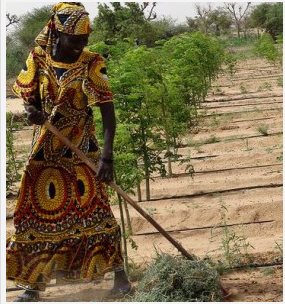Bill Gates released his 2012 annual letter, stressing the need for agricultural innovation to further international development. He has written annual letters since 2009, each of which outlines the key areas of focus for the Bill & Melinda Gates Foundation for that year. Gates discusses the need for continued effort for other global health issues, including Polio vaccination, family planning programs, and HIV/AIDS prevention approaches. For all of these global health issues, he explains that, “Innovation is the means, and equity is the end goal” for the Foundation. Each letter has highlighted innovation as a means to greatly improve the world.

His call for new solutions comes at a time when roughly 15 percent of the world population—1 billion people—are living in extreme poverty. Gates explains that, despite not having enough food for their families to eat, many of these people are small farm owners. In developing countries, malnutrition is a contributing factor in over half of all deaths of children under the age of five. Additionally, over 270 million children “are suffering long-term malnourishment and micronutrient deficiency,” seriously hampering their growth and development.
Gates states the need to build upon the work of the “Green Revolution” in the 1960s and 1970s, when existing technologies on irrigation, improved seed varieties, and synthetic nitrogen fertilizer were spread to farmers in developing countries. Governments today, he says, are paying less attention to and spending fewer resources on agriculture in their countries. The world spends US$3 billion per year on researching major crops, and very little of that funding is directed toward the needs of small-scale farmers.
According to Gates, modest amounts of investment can have a significant impact on the lives of millions of people. He concludes his letter by stating that he is optimistic about the potential of innovative partnerships between the private sector, developing countries, and aid organizations to greatly improve agricultural productivity throughout the world.
By Marissa Dwyer

Danielle Nierenberg, an expert on livestock and sustainability, currently serves as Project Director of State of World 2011 for the Worldwatch Institute, a Washington, DC-based environmental think tank. Her knowledge of factory farming and its global spread and sustainable agriculture has been cited widely in the New York Times Magazine, the International Herald Tribune, the Washington Post, and
other publications.
Danielle worked for two years as a Peace Corps volunteer in the Dominican Republic. She is currently traveling across Africa looking at innovations that are working to alleviate hunger and poverty and blogging everyday at Worldwatch Institute’s Nourishing the Planet. She has a regular column with the Mail & Guardian, the Kansas City Star, and the Huffington Post and her writing was been featured in newspapers across Africa including the Cape Town Argus, the Zambia Daily Mail, Coast Week (Kenya), and other African publications. She holds an M.S. in agriculture, food, and environment from Tufts University and a B.A. in environmental policy from Monmouth College.








